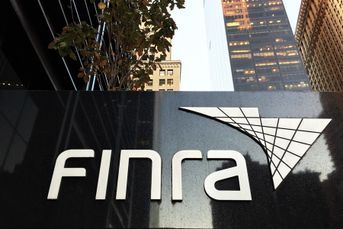PLACE YOUR BETS: EUROPE OR JAPAN; INSTITUTIONS LOOKING ABROAD FOR BIG GROWTH
Europe’s stock markets, some of which warmed up at summer’s end, just might keep on rising, some analysts…
Europe’s stock markets, some of which warmed up at summer’s end, just might keep on rising, some analysts predict. And continued strength could cause waves in international equity allocations by U.S. institutions.
“The next big shift in global equity allocation will be away from the U.S. market and towards all other international markets, with Europe receiving at least a proportionate share” of close to 60% on non-U.S. capitalization, writes Mark Howdle, European equity strategist with Salomon Smith Barney Inc.’s London office, in a research report titled “European Portfolio Strategist.”
“Long-term U.S. investors such as pension funds and insurance companies are under some pressure from industry consultants and fund trustees to gradually build up foreign equities’ share of total assets,” he writes.
The combination of the U.S. market delivering low returns and a weak dollar would push U.S. investors to increase allocations to foreign equities, Mr. Howdle says.
Typically, pension funds and insurance companies have 7% to 10% of assets in international stock. That could shift to a long-term target level of 15% to 20% and perhaps higher.
Without a doubt, European markets were warming up in August. The Morgan Stanley Capital International Euro index, which includes developed markets in Europe, was up 2.2% in August, while falling back 0.6% in September.
But the macroeconomic picture for Europe looks good, one analyst says. “A period of boom-like growth lies ahead” for Europe, says David Mackie, an economist with J.P. Morgan & Co. in London. For example, demand across Europe for durable goods is accelerating, he says.
Growth in gross domestic product across Europe could rise by 4% over the next 12 months, Mr. Mackie writes in a report titled “European Economic Outlook, October and November, 1999.”
He expects unemployment in Europe to reach its lowest levels in nearly two decades, falling to 8% over the coming years, while inflation will remain below 1.5%.
Europe’s rise is “only the start of a longer phase of outperformance,” writes Salomon’s Mr. Howdle. With the euro stabilizing, foreign investors are more likely to buy heavily into European markets over the next year or two, but “The final quarter of the 1900s will be tricky.”
This fall European markets could be trendless and volatile, and experience increasingly illiquid conditions, he warns.
Still, “Pre-millennial tension is likely to give way to a post-millennial relief rally,” he adds.
land of the rising market?
But Europe isn’t the only story in the fourth quarter and beyond, others argue. While upbeat about Europe’s prospects, especially in technology, a couple of portfolio managers are going to continue overweighting Japanese stocks.
Both Driehaus Capital Management Inc. of Chicago and Sit Investment Associates Inc. of Minneapolis are overweight in Japan and underweight in Europe in their international portfolios. Driehaus has a 27% weighting while Sit is 30%. The MSCI Europe Australasia Far East index currently has a 25% weighting in Japanese stocks.
Japan is headed in the right direction, says Roger Sit, deputy chief investment officer, international portfolio manager at Sit. The Japanese government is making it easier for foreign companies like France’s Renault SA, which bought a chunk of Nissan Motor Co. Ltd. earlier this year, to invest, he says. Recent bank consolidations and the presence of foreign brokerages are further proof of changes in Japan.
He likes Europe, he says, but recent mixed economic numbers signal “things are getting better, but not at a robust pace.” Germany’s level of unemployment, for example, is still close to 11%.
Sit runs a $700 million active EAFE-style portfolio for institutional investors.
“Japan continues to be our favorite,” says William Andersen, senior vice president and portfolio manager with Driehaus.
He is likely to increase the Japan weighting in the portfolio before the end of the year, he says.
Driehaus manages close to $1.5 billion for institutional clients in its active EAFE portfolio.
Mr. Andersen says he is looking for fast-growing midsize companies with high-tech bents. Goodwill Group Inc., a Tokyo temporary employment firm that has expanded into information technology consulting, and Hikari Tsushin Inc., a Tokyo-based franchiser of electronics stores, are two, he says.
Crain News Service
Learn more about reprints and licensing for this article.








